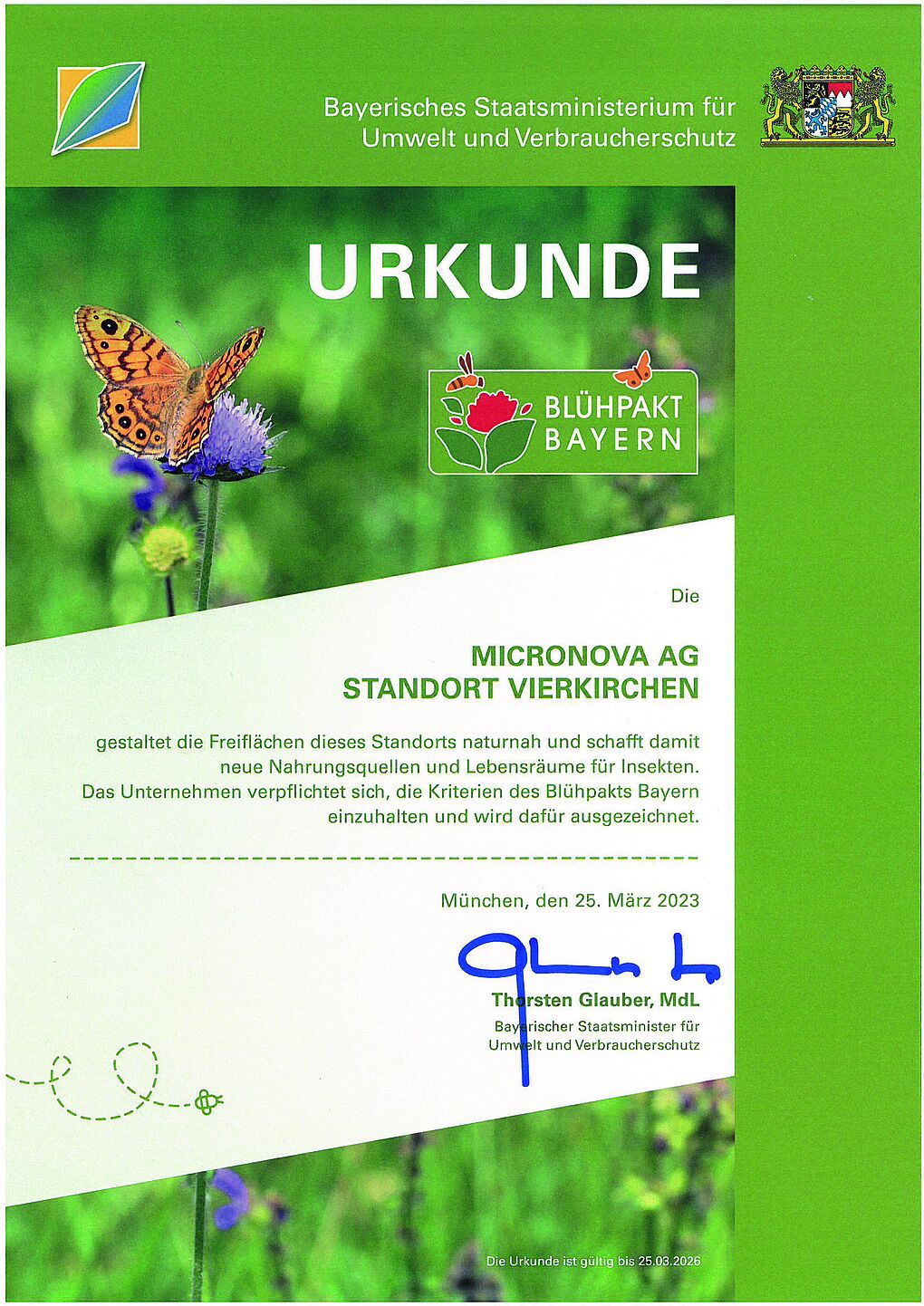Blühpakt Bayern: MicroNova is part of it
MicroNova supports the alliance against insect extinction and decline of species richness
"The number of insects and their species richness have declined massively. With the Blühpakt Bayern we want to stop this trend and develop a broad alliance to achieve this." - so it says on the web pages of the Bavarian Blüpakt Bayern. MicroNova is now officially part of this alliance.
The two bee colonies that have been "living" on the MicroNova premises since 2019, together with the nature-oriented outdoor facilities, were the trigger for MicroNova to apply for participation in the Blühpakt Bayern - and they were also the reason for receiving an acceptance from the responsible State Ministry for the Environment and Consumer Protection. The certificate arrived in Vierkirchen in March 2020. It certifies a "belonging" to the pact for three years each(see also: Website Blühpakt Bayern); the renewed award took place in March 2023.
MicroNova founder and Chairman of the Supervisory Board Josef W. Karl, says: "I am very pleased that we are involved and contribute in many places beyond the operational work. For example, our successful participation in the Blühpakt Bayern (Bavarian Flowering Pact), which demonstrates the near-natural design of open spaces, is important evidence of this. We also planted more insect-friendly shrubs and a total of 13 trees at the Vierkirchen site and installed an insect hotel in 2020."
There is plenty of room for this: of the almost 3,000 square meters of open spaces at the Vierkirchen site, more than half have been designed to be close to nature and are particularly insect-friendly. In addition, there are around 135 square meters of green spaces on those house roofs that are not reserved for the in-house photovoltaic system. Numerous other insect-friendly individual measures complete MicroNova's commitment, including the fact that the flowering meadows are only mowed twice a year and remain partly unmowed during the winter. Even the outdoor lighting is designed to be insect-friendly with regard to the color temperature of the LEDs and the switch-on times.



